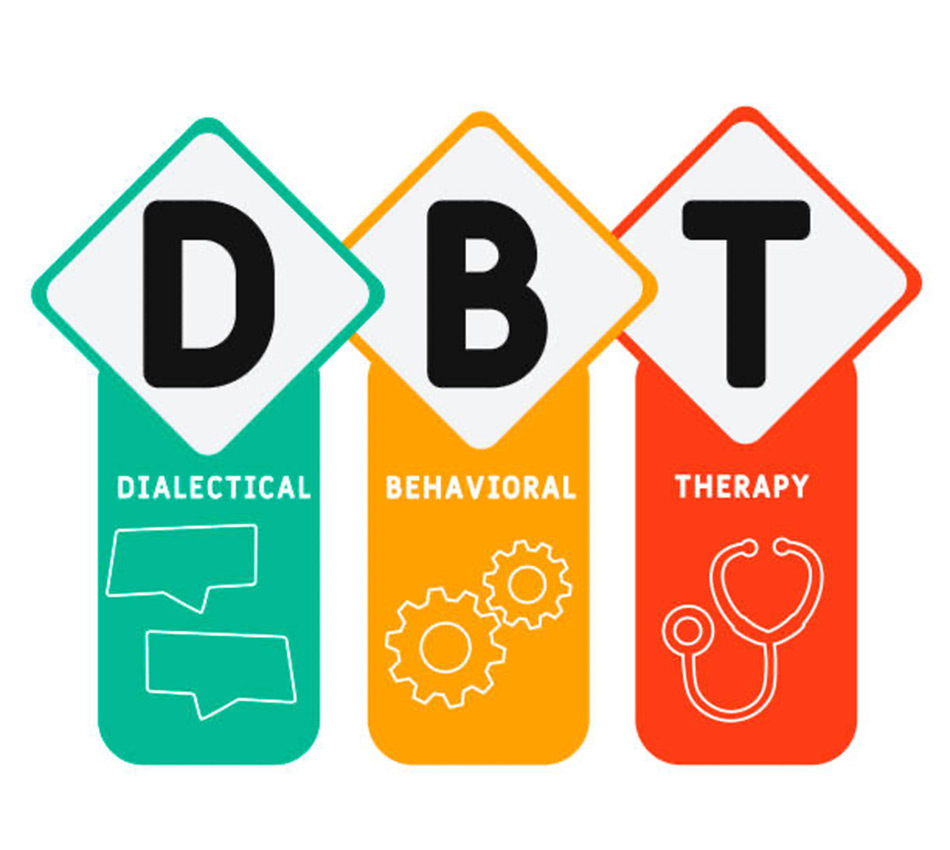
Overcome self-destructive thoughts and behaviours with DBT
What is Dialectical Behaviour Therapy?
Dialectical Behaviour Therapy (DBT) is an evidence-based form of cognitive behavioural therapy. DBT aims to help individuals manage intense emotions, reduce self-destructive behaviours, and build healthier relationships. The term “dialectical” refers to the idea that two opposite truths can exist at the same time—for instance: “I’m doing my best” and “I can do better.”
- Acceptance: Acknowledging and validating one’s current experience as “I’m doing my best with what I know right now.”
- Change: Developing healthier ways to cope with strong emotions and self-harming behaviours: “I am capable and will improve.”
Common issues we address in Dialectical Behaviour Therapy
- Suicidal thoughts and behaviours
- Self-injury
- Depression
- PTSD
- Trauma
- Mild eating disorder
Skills you will develop in DBT
Mindfulness
By focusing on the present moment and recognising that thoughts are temporary, you can begin to see them as separate from who you are and what you do.
Distress tolerance
Developing the capacity to be with uncomfortable feelings without acting on them in unhealthy ways.
Emotional regulation
Recognising your feelings, increasing awareness of their intensity, and developing healthy strategies to manage and express them.
Interpersonal effectiveness
Communicating in a way that is both assertive about what you want while being respectful of others’ needs and feelings.
DBT at Incontact
Personal sessions
Meet one-on-one with a therapist to address specific challenges and work through your goals. These sessions are focused on personalised support and skill-building to manage emotions and behaviours.
Group sessions
Weekly group sessions are led by our therapist to teach DBT skills and provide a supportive environment for learning. Participants receive ‘homework’ to reinforce the techniques learned and practice them in real life.
Tracking progress
Keeping a daily journal is a key part of DBT. This helps individuals track their emotions, behaviours, and progress in applying the skills, fostering greater self-awareness.
Four stages of treatment
DBT involves four stages of treatment, from addressing life-threatening behaviours to enhancing overall life satisfaction. These stages are non-linear, allowing individuals to revisit areas as needed throughout the process.
FAQ
DBT is especially helpful for individuals who experience intense emotions and engage in self-destructive behaviors. It is also beneficial for those dealing with conditions like PTSD, depression, eating disorders, or substance abuse.
Unlike many therapies that focus solely on talk and introspection, DBT combines emotional validation with active skill-building to manage extreme emotions. It emphasises both acceptance of current feelings and the motivation to change them.
DBT is typically a long-term commitment. The therapy progresses through four stages and is non-linear, which means the duration can vary depending on individual progress. Many people stay in therapy for several months or even years.
In group sessions, a therapist leads discussions and exercises aimed at teaching DBT skills, such as mindfulness and distress tolerance. Participants share experiences, practice skills, and offer mutual support, which can help reinforce learning.
While personal sessions are key to individualised support, attending group sessions is an important part of the DBT model. Group sessions help reinforce what you’ve learned and provide valuable practice in a supportive environment.
Yes, DBT can be beneficial even for those who don’t have a specific diagnosis. It focuses on teaching emotional regulation and coping strategies, which can help anyone dealing with intense feelings or challenging behaviors.
Although DBT was originally developed to treat BPD, it is effective for a wide range of emotional difficulties. It is commonly used to address self-harm, depression, eating disorders, trauma, and substance abuse.
Journaling is an essential tool in DBT as it helps you track your emotions and behaviors, providing insight into patterns and progress. It also strengthens your self-awareness, a key component in managing your emotions.
The stages of DBT address everything from life-threatening behaviors to enhancing life satisfaction. These stages are flexible, meaning individuals can revisit previous stages based on their evolving needs.
DBT is a structured approach, but results take time. While some people may notice improvements in their emotional regulation and coping skills fairly quickly, full progress typically takes months of consistent effort and practice.












